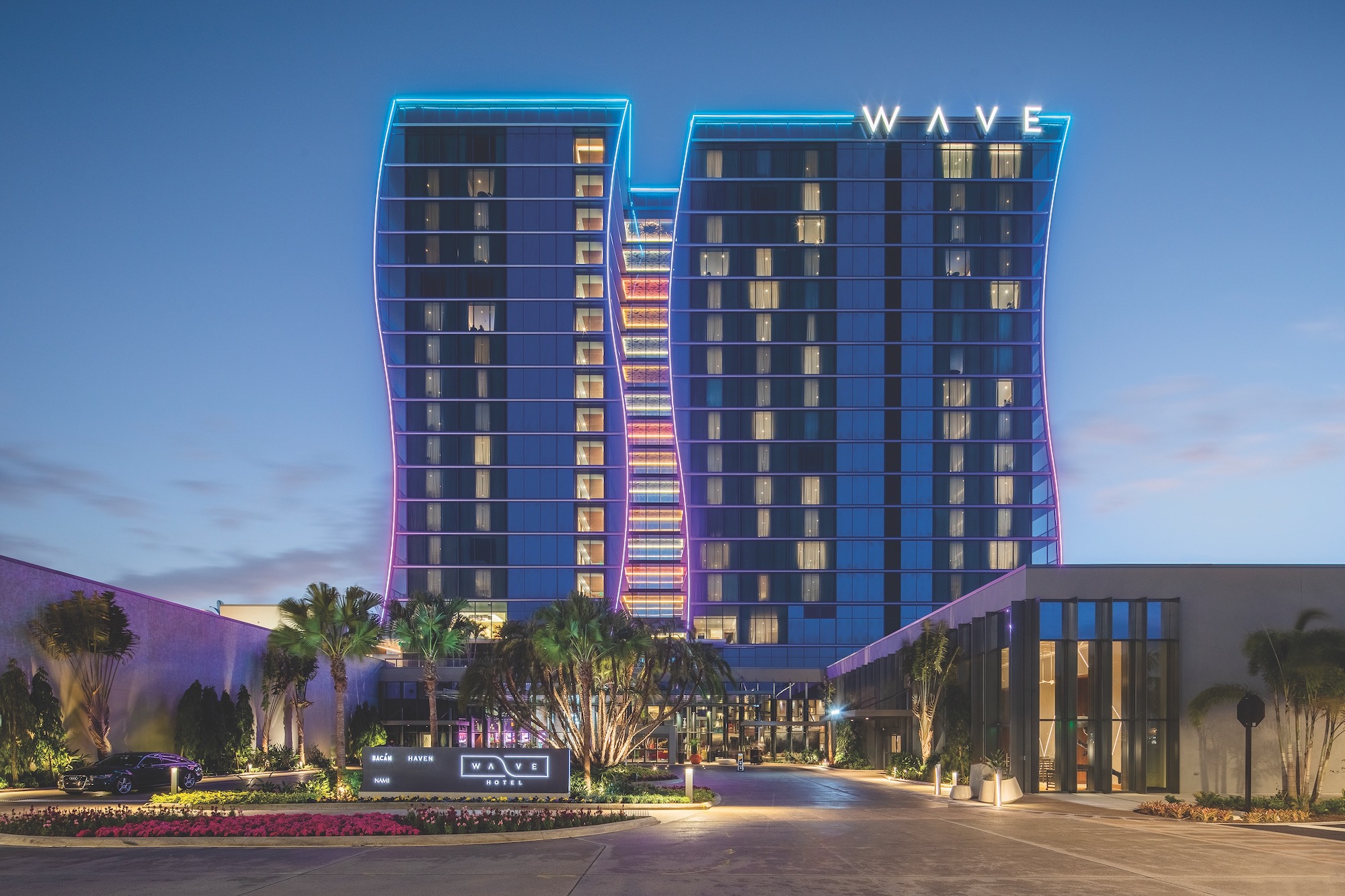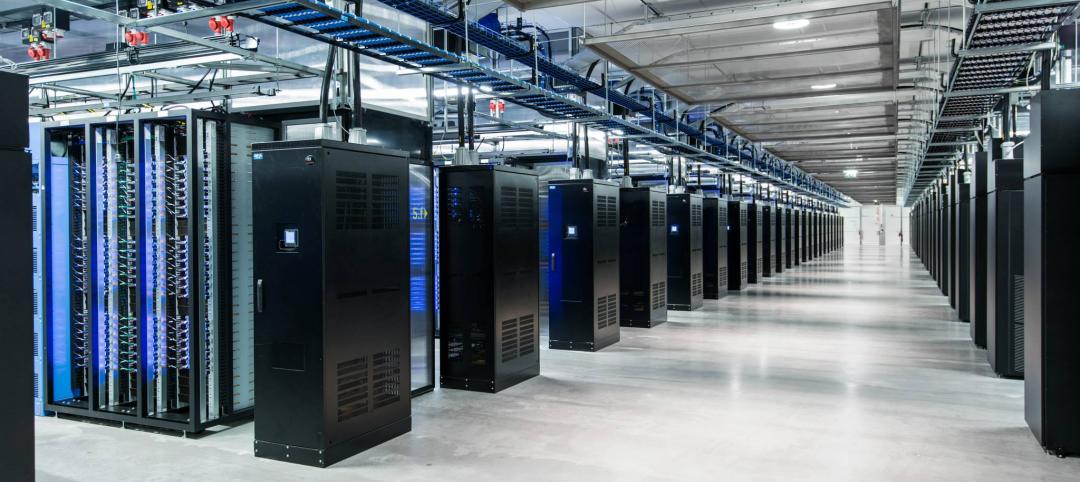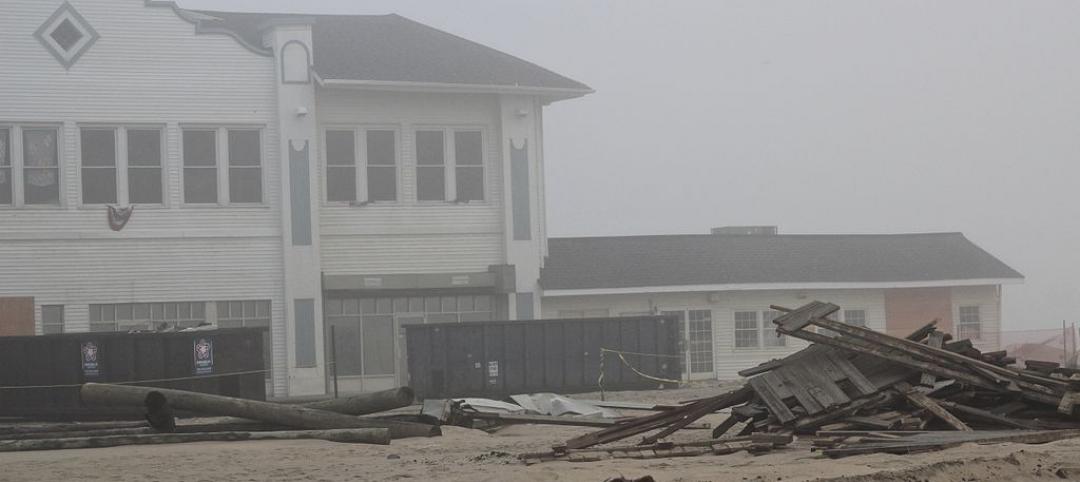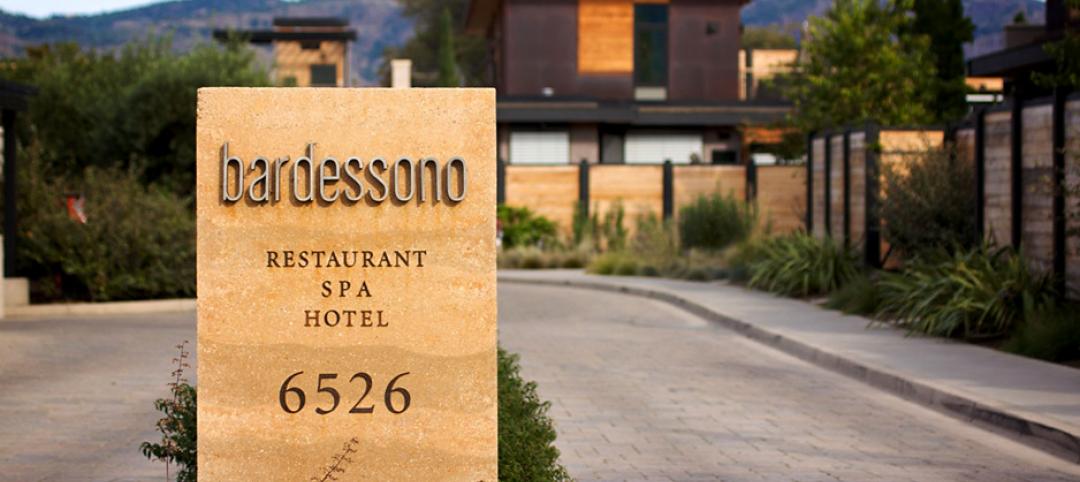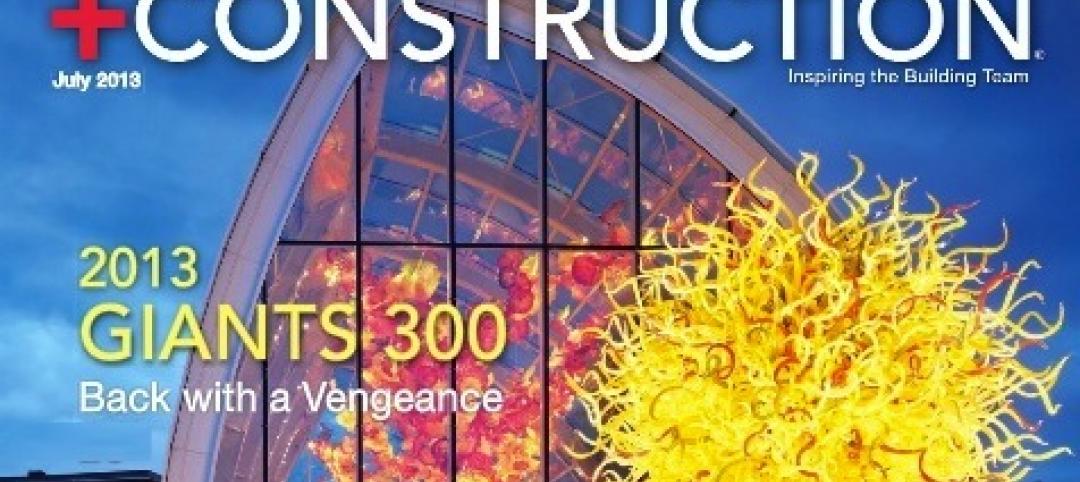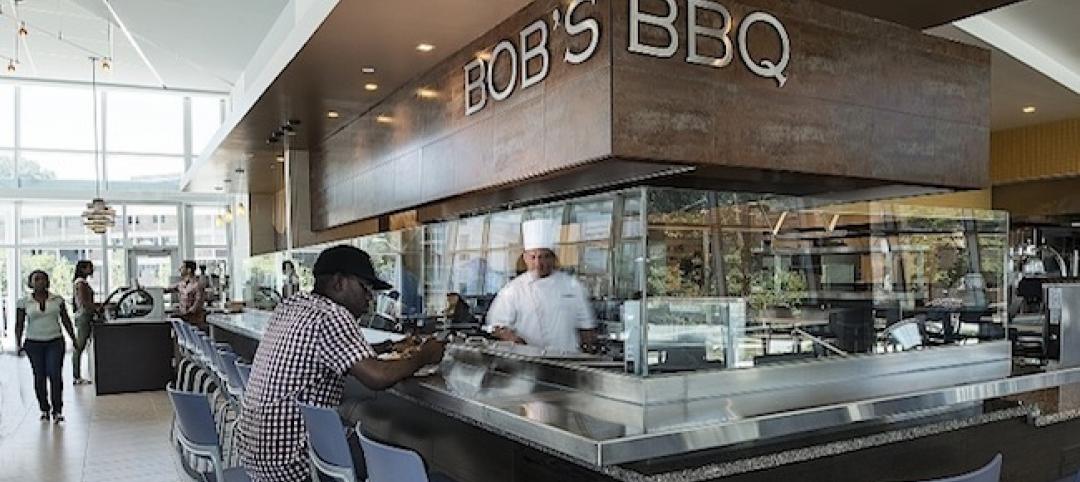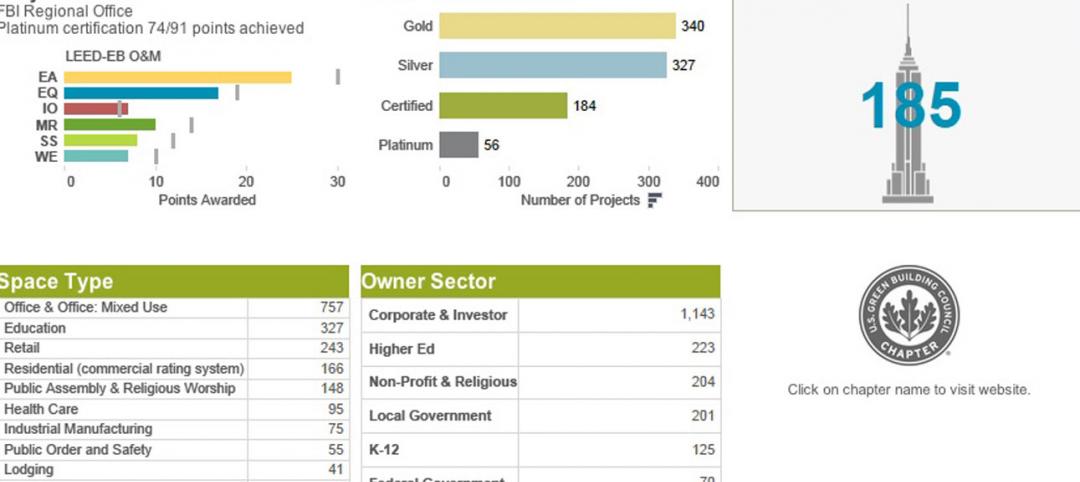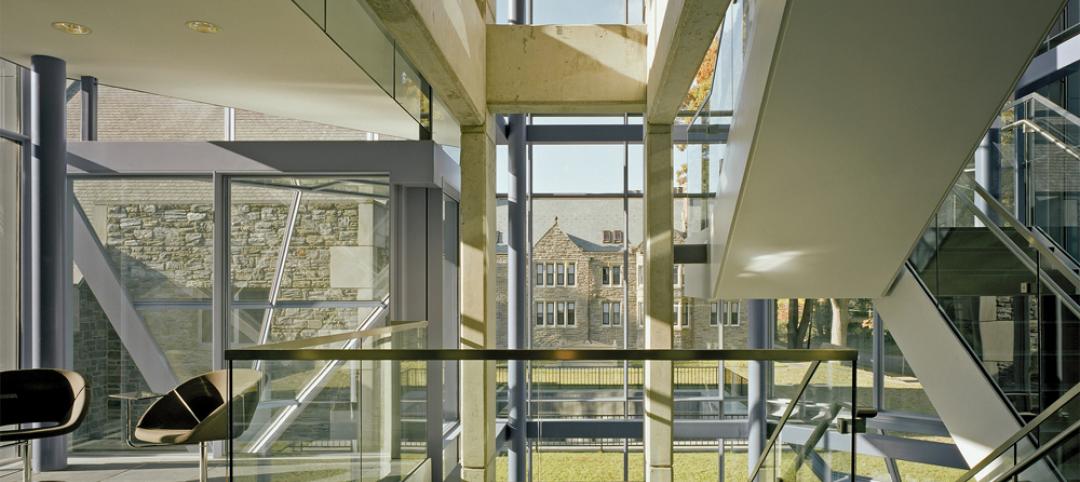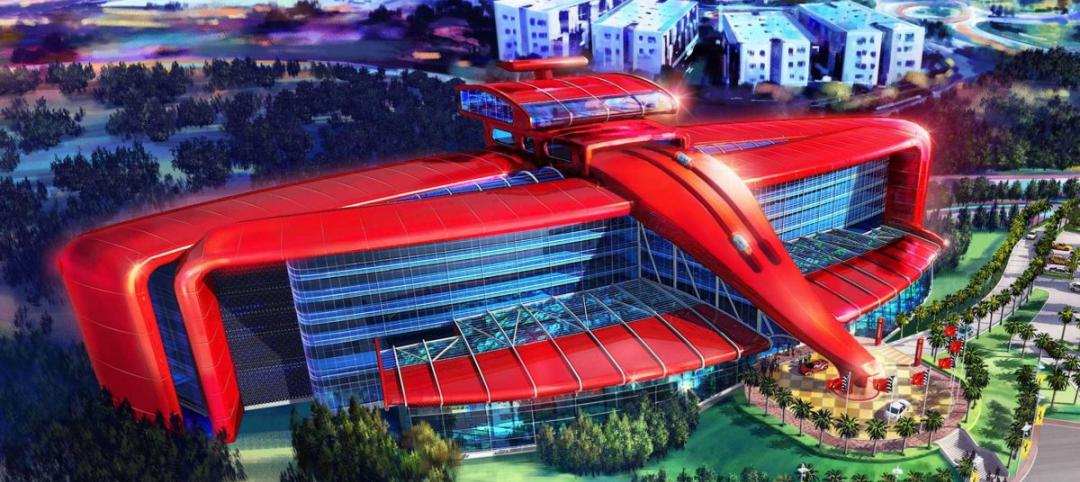Marriott International’s new headquarters building in Bethesda, Md., sits adjacent to the 205,000-sf, $65.9 million Marriott International Headquarters Hotel, which opened last January. The hotel, with 244 rooms, welcomes its guests with a two-story lobby whose candle-shaped lights suspend from a ceiling that rises 34 feet. The lobby includes a grand staircase that doubles as seating.
Lobbies often form guests’ first impressions of hotels, and in recent years lobbies have evolved beyond places to check in and mark time to being showcases for the hotel’s brand of hospitality. “More and more, lobbies are designed to be social gathering places, useful for both personal work and leisure,” says Brandon Johnston, LEED AP, DBIA, Operations Manager for Hensel Phelps, the Marriott hotel’s core and shell GC. (Gensler was the AOR on this project.)
PCL Construction has seen “strong demand for lobby redesign, renovation, and makeovers,” says its Vice President of National Business Bob Hopfenberg. “Restaurants and bars are moving into public lobby space versus being tucked away in a remote location of the property.” Daniel Adache, Chairman of Adache Group Architects, observes that as more guests are “working nomads,” branded and independent hotels are expanding the lobby experience to include food and beverage, entertainment, and support technology. One of Adache’s recent design projects, the 14-story, 138-room Aloft Hotel Fort Lauderdale, includes a 5,000-sf second-floor lobby with a bar, outdoor terrace, and a breakfast establishment, called Re:fuel Aloft.
Scott Lyons, Commercial Core Market Leader for DPR Construction, adds that lobbies are set up to keep guests on premises longer and to help them differentiate their experience on the property by incorporating local art and materials, local smells and sounds, and live music.
Technology drives user experience in hotel designs
The prominence of lobbies accentuates a larger trend that’s finding hotels emphasizing personalized services and technology, and local authenticity. This trend is touching all parts of hotels: One of Layton Construction’s recent projects was a major renovation of the Ritz-Carlton in Kapalua, Hawaii, that upgraded the resort’s lobby and bar, converted a restaurant to a club lounge, and improved the property’s landscaping and pool, according to Will Summerhays, Layton’s Vice President.
Here’s a closer look at hotel trends, based on interviews with eight AEC firms contacted for this article:
1. The personal touch: Making guests feel special is the name of the game. Summerhays notes that brands such as AC Marriott have the guest’s name on the TV to welcome them when they enter the room. Marriott’s Element brand features filtered water in each guestroom, and areas for yoga training. Lyons of DPR Construction cites such in-room activities as exercise bikes and guided workouts on demand. And more hotels these days are pet friendly.
Hotels are striving to present their patrons with “Instagrammable” moments that might get posted (and thereby promote the hotel to a wider audience), say Hopfenberg of PCL and Emily Marshall, IIDA, NCIDQ, Principal and Interior Design Director with HBG Design. Marshall points specifically to the new Caption by Hyatt Beale Street Memphis, whose accommodations carry through the hotel’s energy with a “bold and irreverent design” that features a work-and-play seating area.
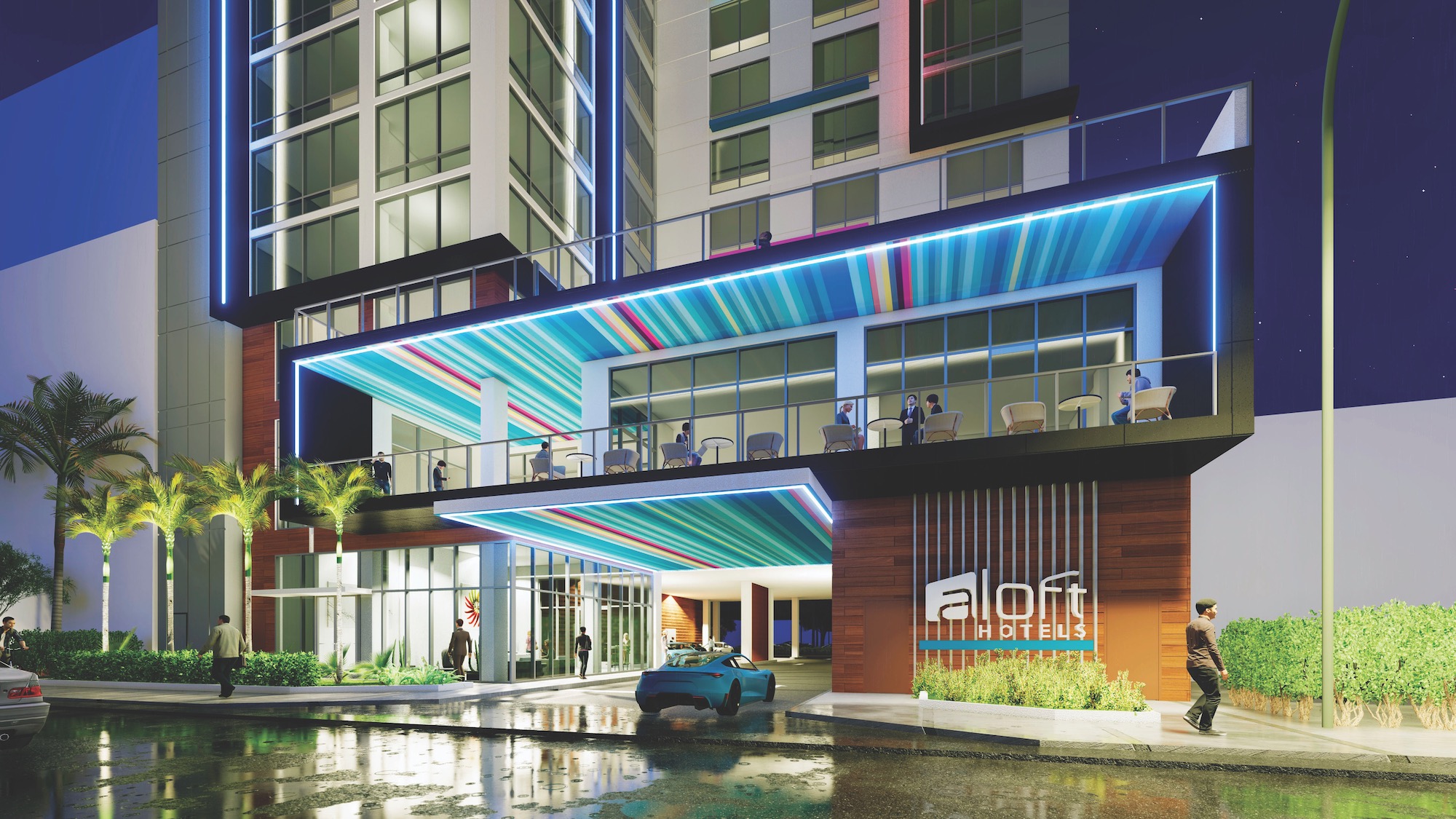
Scenic rooftop bars, innovative gyms, high-end restaurants, and wellness amenities are among the personal touches that more hotels are offering, says Scott Skidelsky, President of Balfour Beatty’s Southeast division.
2. In-room grandeur. “Guests are looking for enhancements everywhere,” observes Jeff Damron, AECOM’s Associate Vice President and Principal. That’s especially true of the rooms they stay in, in terms of décor, fixtures, finishes, and linens.
Experts agree that hotels in general have been upgrading their guestrooms’ bathrooms with better lighting, fixtures, and finishes. Some are installing heated floors, although that amenity is mostly confined to higher-end hotels. Hopfenberg notes that some hotels allow guests to control their rooms’ lighting, blinds, and HVAC via a smartphone app.
Johnston of Hensel Phelps says that boutique hotels in particular are using higher-end materials in their bathrooms, furniture, fixtures, and equipment. Johnston is also seeing less closet space, and more emphasis on outlets to plug in personal technology devices.
ALSO SEE: BD+C's 2022 Hotel Giants Rankings
• Top 115 Hotel Sector Architecture and AE Firms
• Top 70 Hotel and Resort Engineering and EA Firms
• Top 80 Hotel and Resort Contractors and CM Firms
3. Tech, and touchless interaction. AECOM’s Damron says his firm now gets requests from hotel clients to integrate smart technology as a way of enhancing the guest experience and improving the hotel’s operations. These requests, he says, include door lock sensors, temperature monitors, and occupancy sensors that are part of hotels’ energy management systems.
HBG Design’s Marshall notes that remote check-in has evolved to where guests can register online or through a kiosk in the hotel lobby or bar, and can select their room, floor, view, accessibility to amenities, and upgrades. “It is similar to electing your seat on an airplane,” she notes. Marshall elaborates that Caption by Hyatt also gives its guests access to their room keys in Apple Wallet.
Marshall also points to another recent project in Memphis, Hyatt Centric One Beale, with motion-detecting floor lighting designed into the beds.
Kurt W. Seeman, LEED AP, Operations Manager for Hensel Phelps in Colorado, has seen a shift in focus among hotels that are trying to future-proof their infrastructure by using a Gigabit Passive Optical Network (GPON) that gives operators the foundation needed for any “front of house” systems (such as reservations) that might become available down the road.
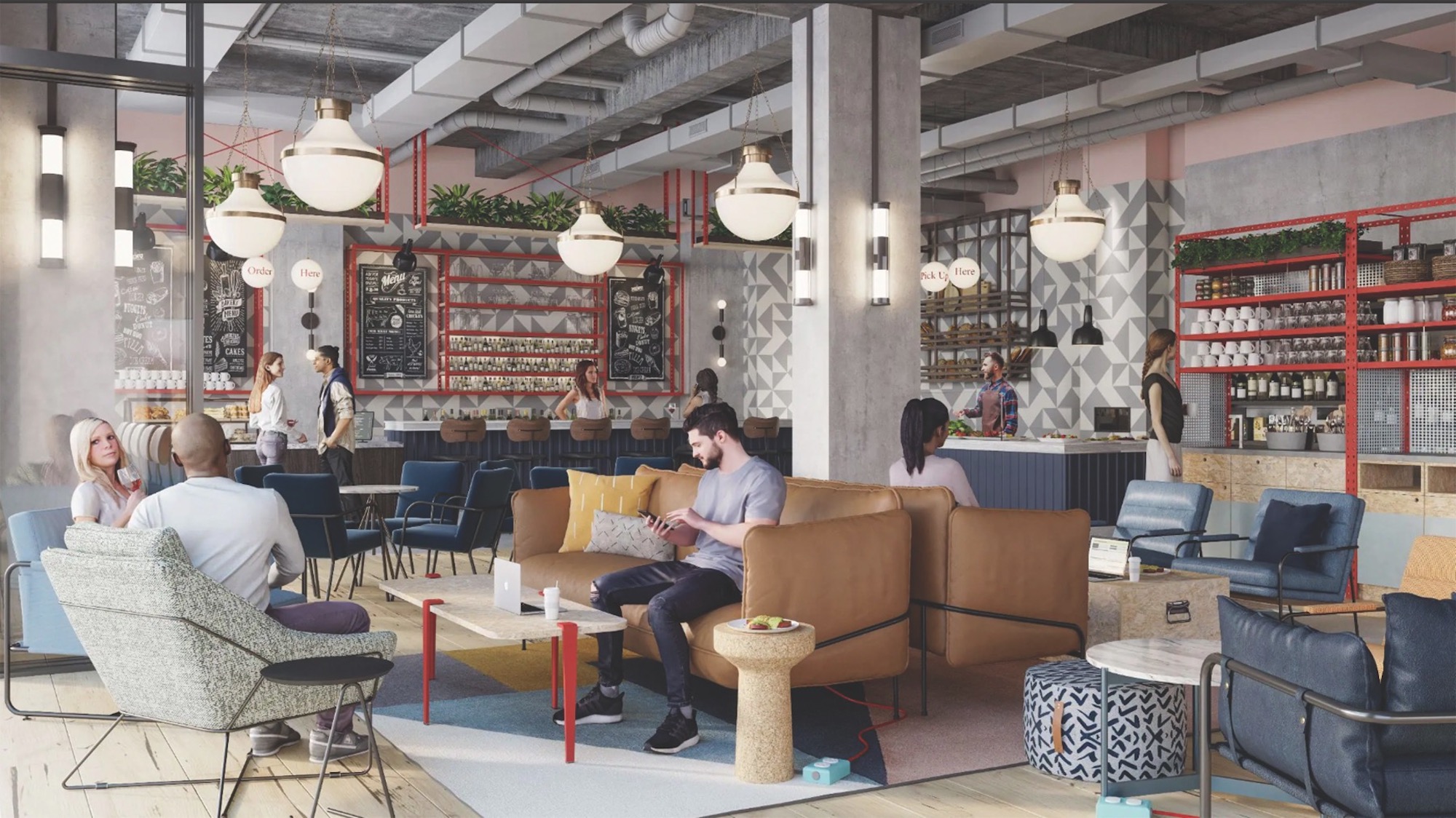
4. F+B pervades the property. It’s no secret that hotel operators see food and beverage (F+B) services as a money stream. Consequently, F+B, in various forms, is available in more areas of hotels. “Restaurants and bars have become the star amenity for many hotel properties,” says PCL’s Hopfenberg. “Hotels are turning spaces into boutique speakeasies, food halls, and bars, with rooftop bars more popular than ever.”
Balfour Beatty’s Skidelsky is seeing more hotels with high-end restaurants branded with named chefs. More broadly, DPR’s Lyons is seeing more niche cafés, coffee bars, artisanal Grab & Go markets, high-end dining, local-fare-inspired dining, and late-night venues within hotels.
At Caption by Hyatt, F+B is part of the design and brand message, says HBG Design’s Marshall. A multifunctional lounge space called Talk Shop encompasses the hotel’s entire first floor, and showcases all-day fare and regional favorites with locally sourced ingredients. Talk Shop includes an expansive patio and beer garden, with open fire pits.
Marshall adds that her firm is working with an international client to convert an underused breakfast space for flexible, all-day use.
Hotel designs reflect community history
5. Reflecting the community’s history. Authenticity has been a buzzword for hotels for quite a while, as operators position their properties as extensions of their communities. AECOM’s Damron makes the intriguing observation that this trend has its origins in timeshare ownership in hotels, “that is changing the landscape of how hotels will be managed in the future.”
Adache says that hotel design can offer insights into the culture and history of the surrounding market, and capture the ambience of the community. One such example is the HBG-designed Caption by Hyatt, whose building is integrated into the historic main building of Wm. C. Ellis & Sons Ironworks and Machine Shop, one of Memphis’s oldest and longest-running businesses.
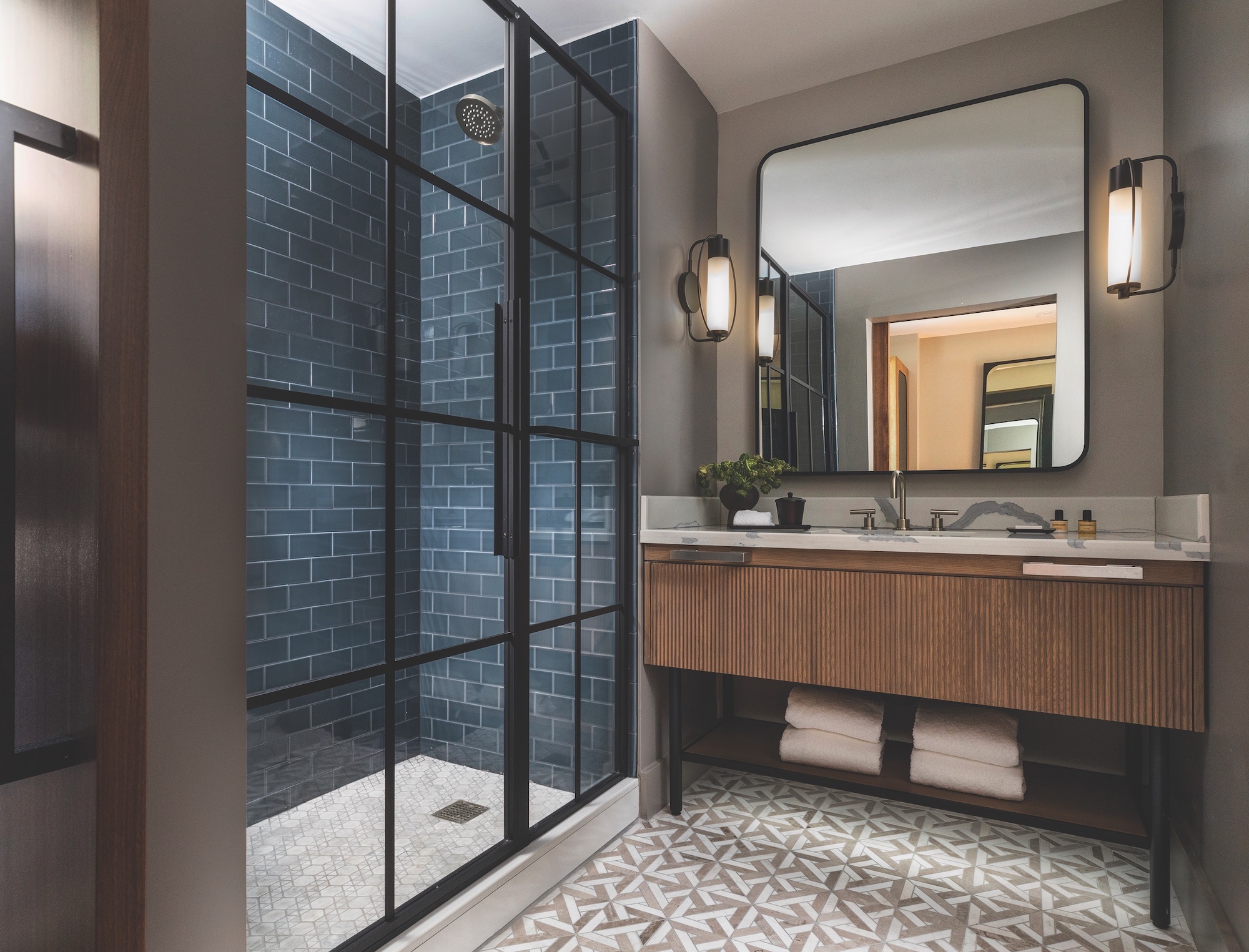
Balfour Beatty recently completed Wave Hotel, a 17-story, 239-room building whose exterior, which resembles a moving wave, reinforces the infrastructure of the Lake Nona, Fla., development. Another recently completed Balfour Beatty project, the 193-key Thompson Savannah Hotel in Georgia, located adjacent to Historic Downtown Savannah along the banks of the Savannah River, is part of the 54-acre Eastern Wharf mixed-use development. The hotel includes 8,000 sf of meeting space and another 8,000 sf of outdoor space, a chef-driven restaurant, and rooftop terrace with stunning views of the river and downtown.
6. Sustainable choices. Layton Construction’s Summerhays says that, with capital construction and operating costs at all-time highs, hotel operators are seeking sustainable and cost-saving solutions. He and other AEC sources say that lighting and HVAC systems have been getting the most attention lately, along with building controls and electrochromic glass.
Wellness is now part of hoteliers’ sustainable equations. Adache says hotels are more likely to lean toward healthier finishes with low or no VOCs. And Caption by Hyatt now prohibits single-use plastics, has hydration stations on each floor, and uses materials with recycled content as well as materials that improve with age and application, says Marshall.
Related Stories
| May 22, 2014
Big Data meets data centers – What the coming DCIM boom means to owners and Building Teams
The demand for sophisticated facility monitoring solutions has spurred a new market segment—data center infrastructure management (DCIM)—that is likely to impact the way data center projects are planned, designed, built, and operated.
| May 20, 2014
Kinetic Architecture: New book explores innovations in active façades
The book, co-authored by Arup's Russell Fortmeyer, illustrates the various ways architects, consultants, and engineers approach energy and comfort by manipulating air, water, and light through the layers of passive and active building envelope systems.
| May 20, 2014
World's best new skyscrapers: Renzo Piano's The Shard, China's 'doughnut hotel' voted to Emporis list
Eight other high-rise projects were named Emporis Skyscraper Award winners, including DC Tower 1 by Dominique Perrault Architecture and Tour Carpe Diem by Robert A.M. Stern.
| May 13, 2014
19 industry groups team to promote resilient planning and building materials
The industry associations, with more than 700,000 members generating almost $1 trillion in GDP, have issued a joint statement on resilience, pushing design and building solutions for disaster mitigation.
| May 12, 2014
10 highest-rated green hotels in the U.S.
The ARIA Sky Suites in Las Vegas and the Lenox Hotel in Boston are among the 10 most popular hotels (according to user reviews) to also achieve Platinum status in TripAdvisor's GreenLeaders program.
| May 11, 2014
Final call for entries: 2014 Giants 300 survey
BD+C's 2014 Giants 300 survey forms are due Wednesday, May 21. Survey results will be published in our July 2014 issue. The annual Giants 300 Report ranks the top AEC firms in commercial construction, by revenue.
| May 5, 2014
8 modern trends in student dining
Creating a dining experience for the modern millennial requires not only a deep knowledge of good design, but also an understanding of what makes today’s students tick. Culinary designers and consultants provide insights into what trends are transforming the campus table.
| Apr 29, 2014
USGBC launches real-time green building data dashboard
The online data visualization resource highlights green building data for each state and Washington, D.C.
| Apr 16, 2014
Upgrading windows: repair, refurbish, or retrofit [AIA course]
Building Teams must focus on a number of key decisions in order to arrive at the optimal solution: repair the windows in place, remove and refurbish them, or opt for full replacement.
| Apr 11, 2014
Start your engines: Ferrari plans to build first ever hotel
Clad in the carmaker's signature "Ferrari red," the hotel will resemble the grill and hood of one of its iconic cars.


